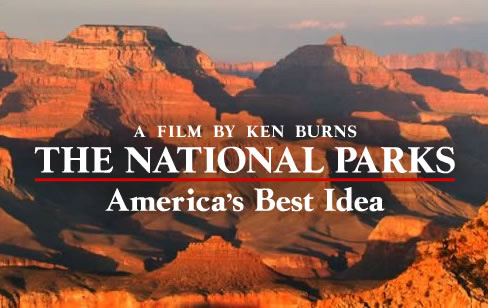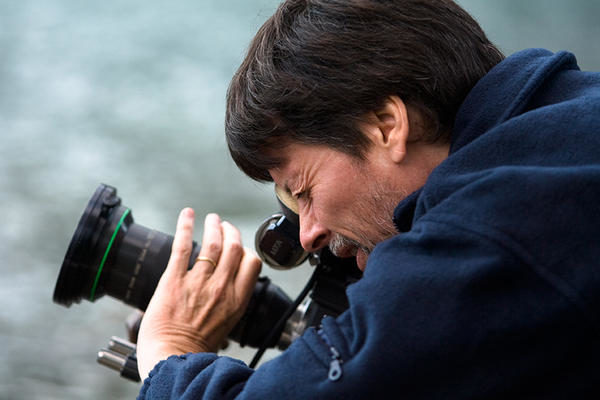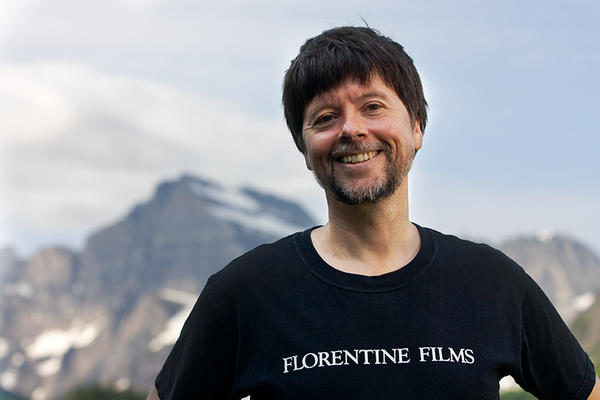
19 Aug Telluride Museum: “An Evening with Ken Burns,” 8/28
Days before the 43rd Telluride Film Festival officially begins, Telluride residents and visitors get a chance to meet award-winning documentary film producer and director Ken Burns. “An Evening with Ken Burns” takes place Sunday, August 28, 6 – 9 p.m. The focus of the evening is our National Parks. The event is hosted annually by the Telluride Historical Museum. Tickets are $25, non-members, $20 for members and $5 students (7 – 17). Purchase tickets here.
“(Ken) Burns is not only the greatest documentarian of the day, but also the most influential filmmaker period. That includes feature filmmakers like George Lucas and Steven Spielberg. I say that because Burns not only turned millions of persons onto history with his films, he showed us a new way of looking at our collective past and ourselves,” The Baltimore Sun.

Award-winning documentary director and producer Ken Burns is an honorary homie. The iconic filmmaker has a 20+year relationship with Telluride, which he is known to describe shamelessly as “my lover.”
Since the Academy Award-nominated Brooklyn Bridge in 1981, Burns went on to direct and produce some of the most acclaimed historical documentaries ever made, recounting the histories of jazz, the Civil War, baseball, Prohibition, the decade-long calamity known as “The Dust Bowl,” the Roosevelts, – and America’s national parks. On his lustrous assembly line: the Vietnam War and the history of country music.
Ken Burns has a well-deserved global reputation for in-depth meditations on Americana, projects on which he often wears many hats: writer, cinematographer, editor, and music director – in addition to producing and directing.
Many of his celebrated documentaries premiered at the Telluride Film Festival, which Burns has described as “the best festival on the planet” and where he now serves on the board. Examples include ”Huey Long,” 1985; “The Civil War,” 1990; “Baseball:The Tenth Inning,” 1994; “Frank Lloyd Wright,” 1998; “Jazz,” 2001; “Horatio’s Drive: America’s First Road Trip,” 2003; “The War,” 2007; “The Central Park Five,” 2013.
Two of Burn’s films screened at Telluride’s other major film-centric event: Mountainfilm in Telluride, which debuted “The National Parks: America’s Best Idea,” 2009 (and celebrated their centennial at this year’s event in May at an all-day symposium) and “The Dust Bowl,” 2013.

Ken Burns in action, image, Jason Savage
Find out why historians say more Americans get their history lessons from Ken’s films than from any other source when you attend “An Evening with Ken Burns,” Sunday, August 28, 6– 9 p.m., hosted annually by the Telluride Historical Museum. As part of the ongoing celebration of the 100th anniversary of America’s National Parks, the special program includes the screening of an episode from “National Parks,” followed by an Q & A with the director and a book-signing.
In March of 1872, Congress established America’s first national park with the creation of Yellowstone in the territories of Montana and Wyoming. That act launched the national park movement in the U.S. and beyond. Several more parks were established, and on August 25,1916, President Woodrow Wilson signed the act that created the National Park Service. Today, America’s National Park system comprises 407 areas that cover more than 84 million acres. Sites range from the Lincoln Memorial to Mount Rainier and the Grand Canyon and contain some of the country’s most beautiful and historic places.
With 391 units (58 national parks, plus 333 national monuments and historic sites), the National Park Service has a presence in 49 of the 50 states. (Delaware is the sole exception.) Today, National Parks are home to graceful arches of sandstone and otherworldly badlands, of alligator-infested mangrove forests and bison-studded plains. Immense river canyons where time stretches beyond imagination, massive caves draped with stalactites, historic battle sites, the country’s hottest and driest desert, and the tallest mountain in North America.

Ken Burns, National Parks, image, Jason Savage.
Wallace Stegner described our the National Parks as ”the best idea we ever had.” And no activity of the federal government engenders such universal support and public loyalty. Yet the story of how these special places became preserved as parks, the role of individual citizens in creating them, and the powerful stories of people’s emotional connection to them was relatively unknown until Ken Burns turned his lens on that narrative.
Burns’ “The National Parks: America’s Best Idea” is the story of an idea as uniquely American as the Declaration of Independence and just as radical: that the most special places in the nation should be preserved, not for royalty or the rich, but for everyone.
Find out more by listening to Ken Burn’s podcast.


Sorry, the comment form is closed at this time.